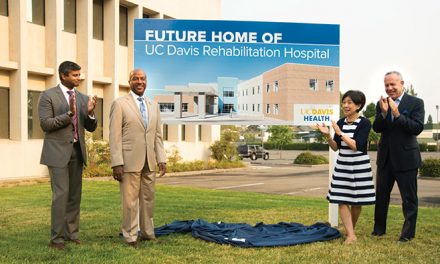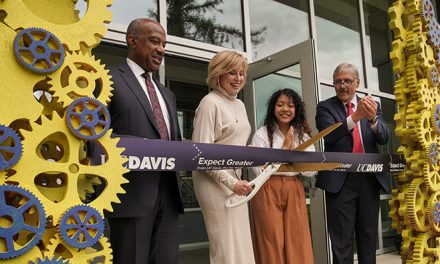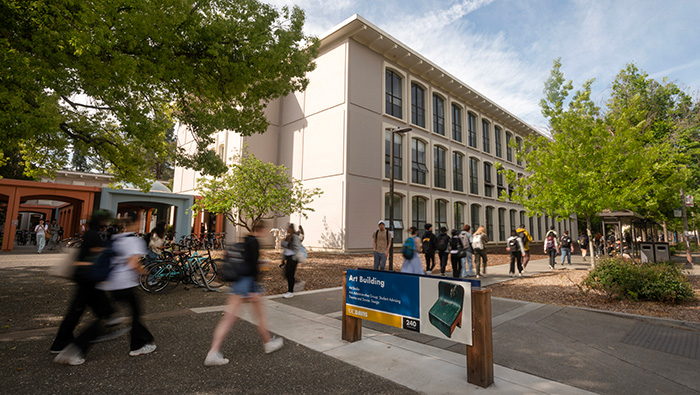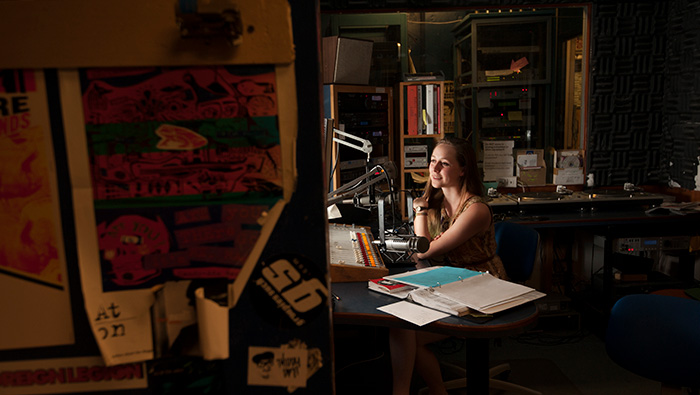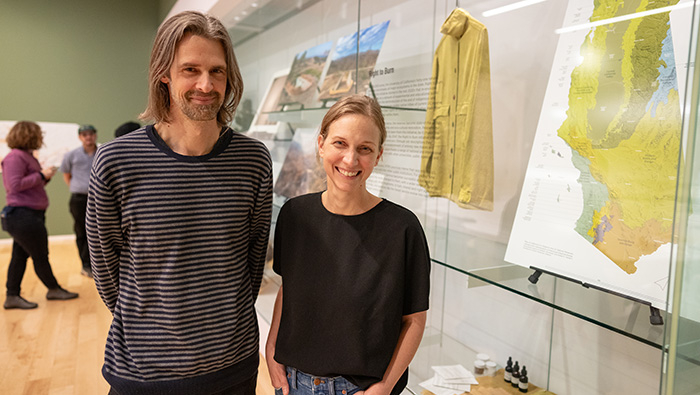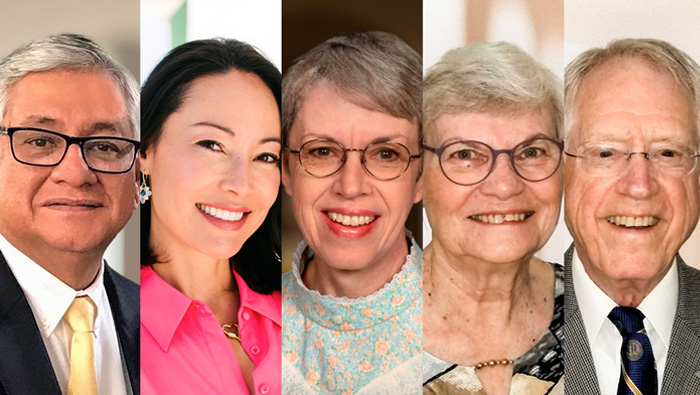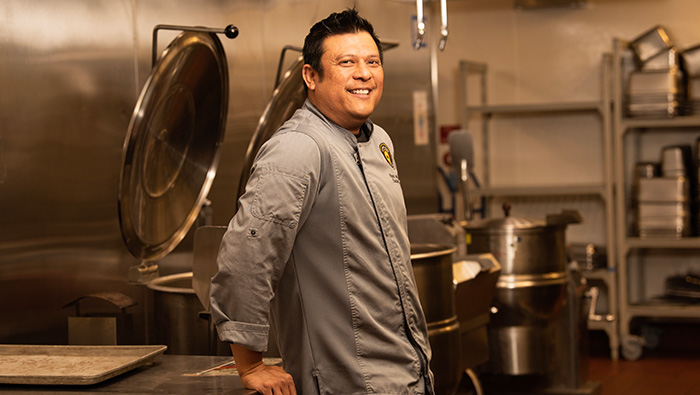
In Their Time of Need
Rebecca Bania was taking a course in the summer of 2020 so she could catch up and graduate with her twin, Elizabeth, in the fall. Instead, UC Davis awarded Rebecca a posthumous degree that summer. She died of pneumonia.
Recognition of their student’s academic achievements is held dear by grieving parents, and it’s just one of ways that a recently established committee helps coordinate support for family, friends and the campus when a student dies suddenly.
“How do you want their name printed on the degree?” said Bill Bania, who with his wife, Carla, are parents of the twins and a younger sister, Emily. “To me that is the only hard question parents should be asked,” he added tenderly.
The family highly values education, and the parents said it was especially so because a condition affecting the girls’ muscles necessitated the use of motorized wheelchairs. ”It is important to have degrees to make your way in the world,” Bill Bania said.
Jennifer Chow ’91, associate director of student support in Student Support and Judicial Affairs, personally delivered Rebecca’s bachelor’s degree in English to the family’s home in El Macero, a community adjacent to Davis. “We want to be a source of support to those left behind when a student passes so they don’t have to feel like they’re travelling alone through the grieving process,” she said.

When a student dies, a campus committee helps facilitate the grieving process, stabilize the campus community and reduce the risk of negative behaviors.
Chow and Paul Kim, the director of Counseling Services, serve as co-chairs of the Postvention Committee. The group has 24 representatives from across campus — including student health, housing, the Council of Associate Deans and Global Affairs — who meet about individual student deaths and coordinate services. A student representative participates in quarterly meetings for general discussion and policy decisions.
Introduced in fall 2019, the Postvention plan that guides care resulted from a collaboration on mental health program and policy development with the JED Foundation, a nonprofit that works to protect emotional health and prevent suicide among teens and young adults. The foundation has since cited the UC Davis plan as an example of best practices.
The committee meets about sudden student deaths of any manner. In addition to providing care to those most immediately affected, its purpose is to facilitate the grieving process, stabilize the campus community and reduce the risk of negative behaviors including suicide.
For students who have experienced the loss of a classmate, a roommate or maybe a teammate, support can mean help with referrals for counseling; making arrangements with instructors and advisors to extend project deadlines and change course loads; and even assistance finding a new place to live.
“Even though we’re a big university, we give students very personalized service,” Chow said. “We support them through triumphs as well as difficult times.”
For parents, the university will send a letter of condolences and offer help collecting the student’s belongings, making connections for a memorial service on campus and finding referrals for counseling in their home community. The committee also offers other help ranging from accessing translation services to a brief consultation with the legal services provided by the Associated Students of UC Davis.
“Sometimes, it’s just a listening ear,” Chow said.
For students and families in need, the committee has a small budget to help with specific services — from a hotel stay for a few nights to renting a moving truck.
Bill Bania, who is studying part time at UC Davis for a doctoral degree in materials science and engineering, and his wife said they appreciate how some services would be especially important for families at a distance or less familiar with the campus. For them, it was recognition of their daughter’s education.
In a sometimes teary Zoom interview, the Banias recalled losing their daughter. Rebecca Bania was sick for about two weeks. She became so ill that, even with concerns about the pandemic, they took her to a hospital emergency department July 7. After sleeping that day, she passed away in the evening.
Rebecca’s family was heartbroken. Her parents described the 27-year-old as a spunky young woman with a strong sense of social justice and a love for writing fan fiction developed from the worlds of Harry Potter, Transformers and Dr. Seuss. “She was just coming into her own,” her father said.
Within two days of Rebecca’s death, the campus committee met to coordinate care for those whose lives she had touched, including other students, staff and faculty.
Bill Bania took his question about a posthumous degree to Jeffrey Gibeling, an engineering professor and former dean of Graduate Studies. “I thought Dr. Gibeling would know how that would work, and I had no capacity to work it out,” he said.
The family received notes of condolences and calls from the campus. “They were in touch and had that door open in case we needed it,” Bill Bania said.
Within three days of Rebecca’s death, the committee received an answer back that the Academic Senate had approved the awarding of a posthumous degree.
Today, the records of the twins’ degrees are treasured together with other diplomas in what the family calls its education box.

